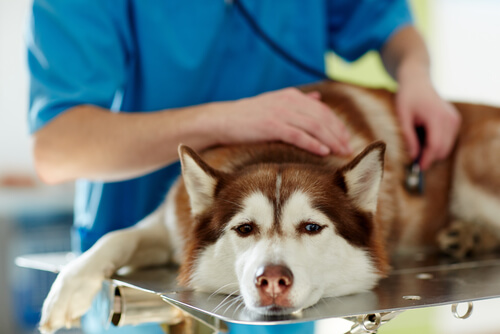As a responsible dog owner, you probably already schedule annual veterinarian visits for the furriest member of your family. However, just like people sometimes get ill between well-checks, you may need to make extra appointments for your canine pal depending upon his or her symptoms and behavior. In this guide, you will see five signs that your dog needs to go to the vet as soon as possible.
-
Any changes in eating – Typically, healthy dogs follow a fairly regular eating routine. If you notice your pet changing how he or she eats in any way, you should schedule a vet visit right away. Refusing food, throwing up often, or eating less frequently overall can all be signs of anything from a simple virus to a potentially deadly intestinal obstruction.
-
Drinking more or less water than usual – If you notice that your family’s dog has started drinking more or less water than he or she typically does, it’s a good idea to visit your vet as soon as you can. The primary concern with drinking too little is a digestive system issue, while the main fear with drinking too much is diabetes. Both of these potential problems need to be treated promptly.
-
Malaise or lethargy – Like humans, dogs’ energy levels tend to naturally decrease as they age. If, however, you notice that your pet suddenly seems much more lethargic than usual or if you have a puppy who stops being active, you should visit your vet right away. Malaise can be a sign of parvovirus and other serious medical conditions that require immediate care.
-
Recoiling or wincing when touched – If your dog has begun to recoil or wince when touched, it’s a good indication that he or she is in physical pain. While the cause may be a minor cut or bruise, it could be something more serious. Due to this, it’s a good idea to have your vet take a look at your pet just in case surgery or medication is necessary.
-
Sudden aggressive behavior – If your normally docile dog begins behaving aggressively toward strangers or members of your family, it’s time to visit your veterinarian. Sudden aggressiveness and anger can be an indicator of rabies, so it is crucial to get your pet checked out as quickly as possible if you notice a change in his or her demeanor.
We hope our professional background of dog behaviorists will help you better understand how your pup thinks and feels. Contact Leader of the Pack Dog Training and start learning how to speak dog!
